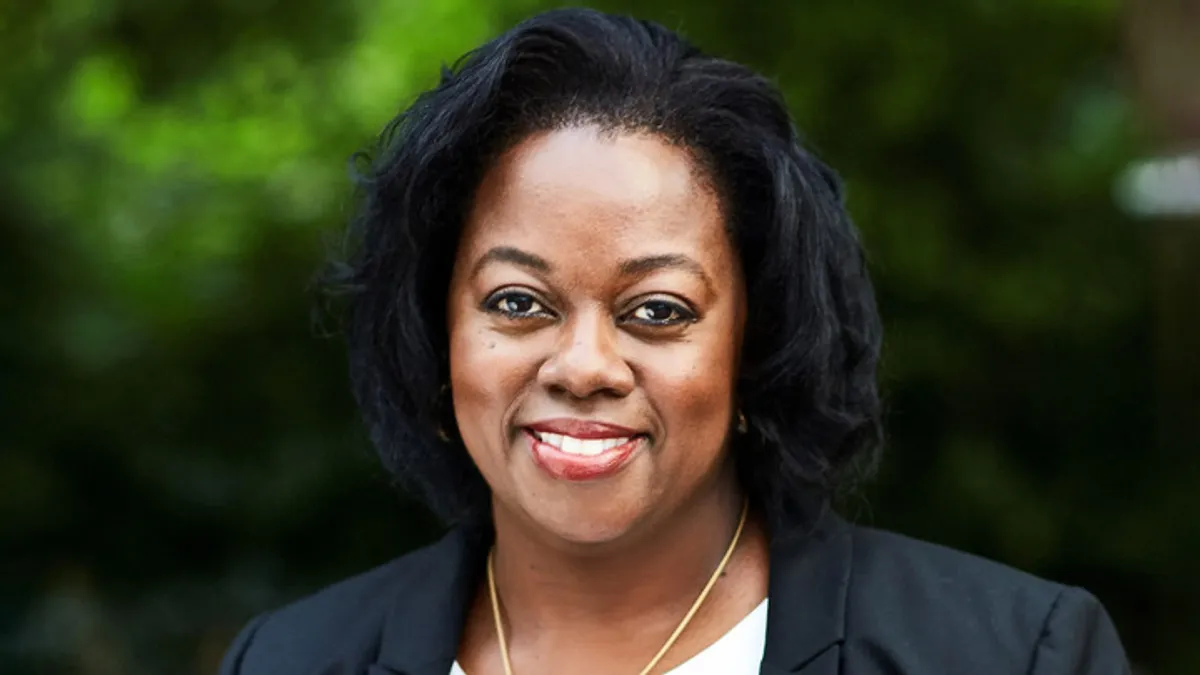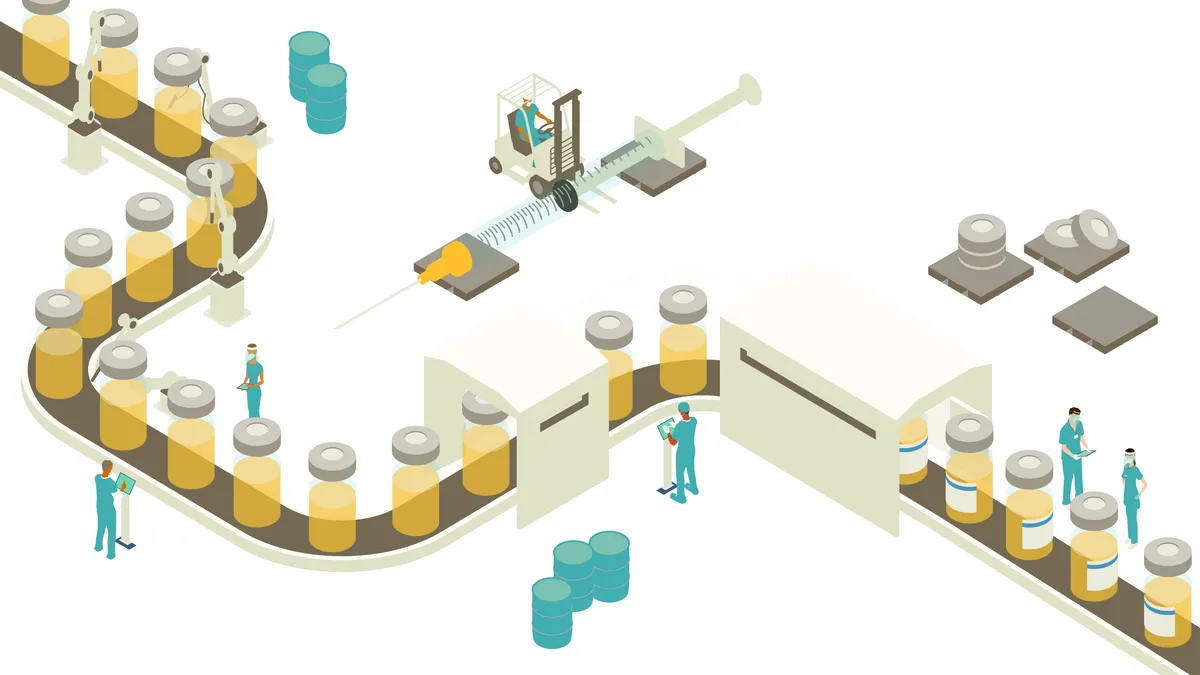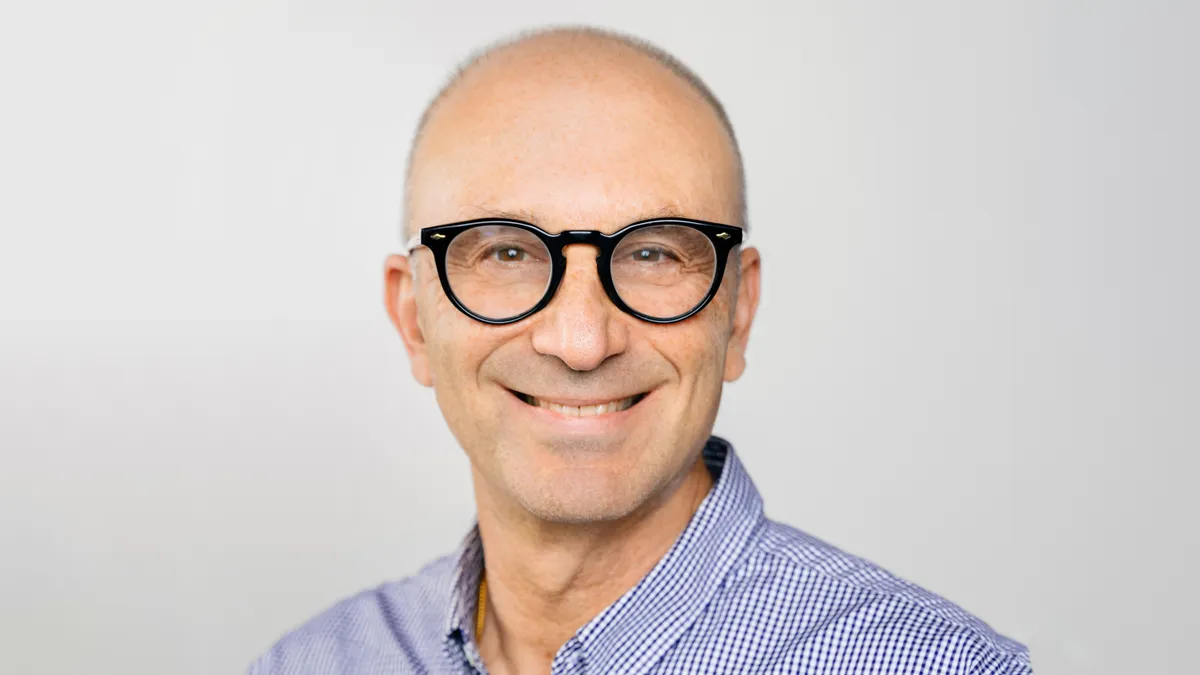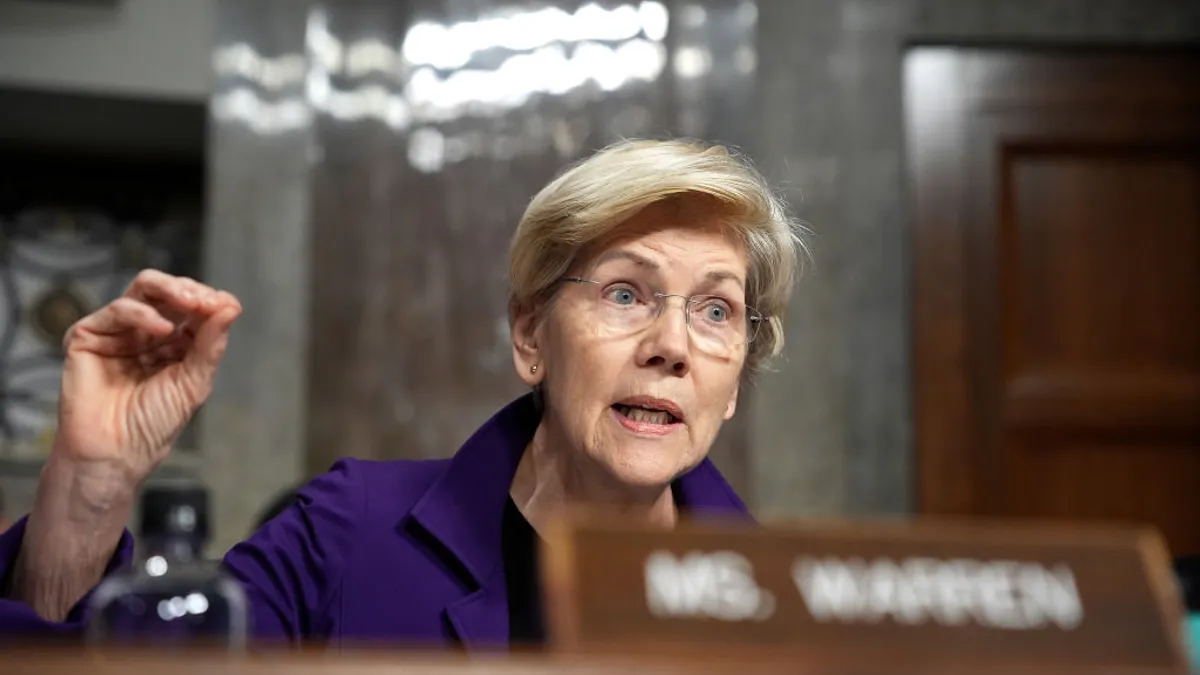High-profile, sit-down interviews with Merck & Co.’s CEO likely wouldn’t have happened a few years ago. But in March, Robert Davis appeared on the CNBC show “Mad Money” to discuss the company’s latest FDA approval with host Jim Cramer. The drug, Winrevair, is a first-in-class therapy — and potential blockbuster — that one expert called a “paradigm shift” for pulmonary arterial hypertension. The approval also showcased the wisdom of Merck’s $11.5 billion 2021 Acceleron acquisition, which Winrevair was part of.
Although talking up a big win makes sense, Big Pharma CEOs don’t often face the public to tout a new approval.
“He might have been fine never going on Cramer’s show, quite honestly,” said Cristal Downing, Merck’s executive vice president, and chief communications and public affairs officer. “I had to truly help him understand and make the case — the business case, quite frankly — for why it was important for him, as a leader and the key spokesperson for the company, to be sharing information in a regular, timely, relevant way.”
Since joining Merck in 2021, Downing has been at the center of an effort to revamp — and in some ways revolutionize — communications for the company, bucking pharma’s zipped-lip status quo and ushering in a “new era” of openness, transparency and “overt communication.”
“It was a new muscle that I had to help the company build, that I had to help the company stretch and continue to use,” she said.
Before Downing’s arrival from J&J, where she had most recently worked as vice president of communications and public affairs for medical devices, Merck’s PR approach was like most major pharma companies.
“They were very quiet and very private, very concerned about talking too soon, too much, too early. Didn't want to share proprietary information,” she said. “They were head down, focused on the science, focused on innovation, and truly believed that it would be quite obvious to all of their external stakeholders what they were doing, how they were doing it, when they were doing it.”
Of course, that’s not always the case, especially for Big Pharma, which suffers from a negative public perception, despite making life-saving medicines.
“We’re in a day and age where we continue to be scrutinized, criticized and sometimes vilified,” Downing said.
Changing the narrative
Even after developing and deploying COVID-19 vaccines at lightning speed, it didn’t take long for the tide of public opinion to shift back to the negative discourse surrounding high drug costs and challenges with medication access.
But if that’s the only narrative, it will become the dominant one. That’s why Downing and her team uses what she calls a “CARE” model to tell a different story and communicate that Merck is “truly helping to save and improve lives and advance global health.”
CARE stands for “connect” with the audience; “align” their message; “reinforce” and repeat the company’s positive impact; and “engage” with clear, cohesive and compelling real-world stories.
“It was a new muscle that I had to help the company build, that I had to help the company stretch and continue to use."

Cristal Downing
Chief communications and public affairs officer, EVP, Merck & Co.
“Our goal is to actually take what we're doing and break it down into those little chunks for the stakeholder audience to understand,” she said. “We keep telling them what we’ve done, why we do it, how we do it, the positive impact, and we showcase the results.”
Downing has other guideposts for shaping the company’s communication strategy, too, such as the need to “protect, defend and elevate” Merck’s reputation, as well as staying focused on the company’s “vision, values and vibe.”
With Downing’s leadership, Merck has become more open about sharing good news when they have an update to be proud of, like Davis’s full court press after the Winrevair approval.
She told the CEO, “You're going on CNBC, you’re going on Bloomberg. We're actually going to do a release. We're going to do some embargoes,” she said. “And these were all things the company had not historically been doing.”
But it also means speaking up when the company needs to defend itself and learning to “get comfortable with riding the wave of a new cycle.”
Downing pointed to Merck being the first company to file suit against the government to fight the Inflation Reduction Act’s drug price negotiation program. It was clear to Downing the company would receive some negative coverage on such a “lightning rod” issue, but she and her communications team helped guide Merck’s response and ensure that “all of the reporters and media are informed and understand our point of view, because that’s what we want.”
“If there’s going to be coverage, we want it to be accurate,” Downing said.
It’s difficult to measure the results of Merck’s communications strategy so far. As Downing noted, corporate affairs is “not a cost center.”
“It may not have a P&L and it may not have revenue targets, but it is, indeed, a really strategic value-driver for both the business and stakeholders,” she said.
Instead, trust, awareness and understanding are all important measures of success, and Downing believes that clear, open communication can drive that for pharma. She also believes it’s working for Merck.
“Judging from all of the lists we've been on, from the most sustainable [pharma] company, to the most admired company, to the most just company, our stakeholder community is hearing what we're sharing in a positive way,” she said.




















